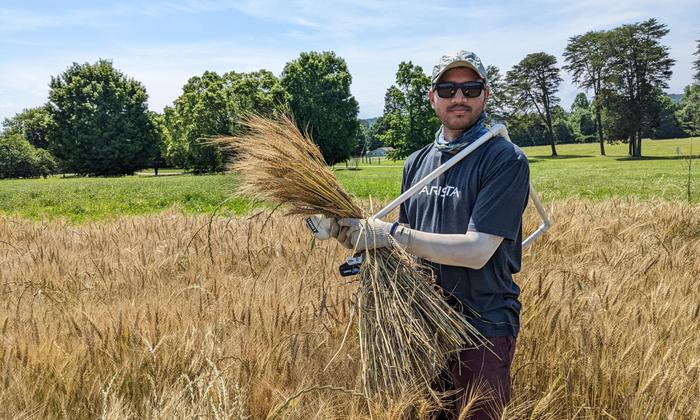The Southeastern United States is increasingly adopting organic farming conservation tillage.
The University of Tennessee Institute of Agriculture’s (UTIA) Herbert College of Agriculture announced doctoral student Ravi Neelipally secured a Southern Sustainable Agriculture Research and Education (SARE) Graduate Student Research Grant. His research delves into the feasibility of organic wheat-soybean double-crop systems in the southeastern United States, a region increasingly adopting organic farming techniques.
The announcement emphasized that Neelipally’s commitment to organic agriculture is deeply personal, rooted in his family’s farming experiences in Gadwal, Telangana. Witnessing the adverse effects of chemical use on their farm, he advocated for a shift to organic methods, which proved successful. His research aims to demonstrate that organic farming can be both productive and sustainable, challenging prevailing doubts about its viability.
In the Southeastern U.S., the extended growing season presents a unique opportunity for implementing organic double-cropping systems. Neelipally’s study focuses on optimizing tillage intensities and cover cropping strategies to boost yields, enhance ecosystem benefits, and improve profitability. Despite common concerns about lower yields in organic farming, his research is set to develop management practices that can counteract these challenges.
Illustrating the potential financial benefits, Neelipally explained that while traditional single-crop systems yield significant earnings, integrating a wheat-soybean double-crop could increase profits to $1,300 per acre under optimal conditions. He advocates for reduced tillage methods to preserve soil health, prevent erosion, and sustain crop productivity, aligning with Tennessee’s prevalent low-tillage soybean cultivation.
“Yield varies from crop to crop,” and there are certain crops, like soybean and wheat, where you can plant them sequentially and cultivate two crops in a season,” Neelipally said in the release. “Your soil will be healthier if you always have something growing underground.”
The research also underscores the broader environmental and economic advantages of reduced tillage and double-cropping, such as lower carbon emissions and reduced land degradation. These practices support the burgeoning organic livestock sector by providing locally sourced organic feed, crucial for maintaining organic certification.
Neelipally’s work is part of a larger initiative led by Sindhu Jagadamma, a professor of biosystems engineering and soil science at UT, focusing on promoting organic farming across Tennessee. This initiative is supported by a USDA NIFA grant.
“Mr. Ravi Neelipally is an outstanding Ph.D. student with an inner drive for excellence in research and outreach efforts,” Jagadamma said. “His research on agronomic and ecological implications of organic grain production will critically help farmers who are currently following organic practices as well as farmers who are interested in transitioning to organic farming.”
Neelipally said he is looking forward to using his fourth year of study, enabled by the SARE grant, to validate the long-term benefits of his proposed organic systems. His aspirations extend beyond academia, as he aims to contribute significantly to organic agricultural practices throughout his career.
For more insights into Neelipally’s innovative research, the UTIA YouTube channel offers a detailed look at his project under “Organic Crops Conservation Tillage.”










